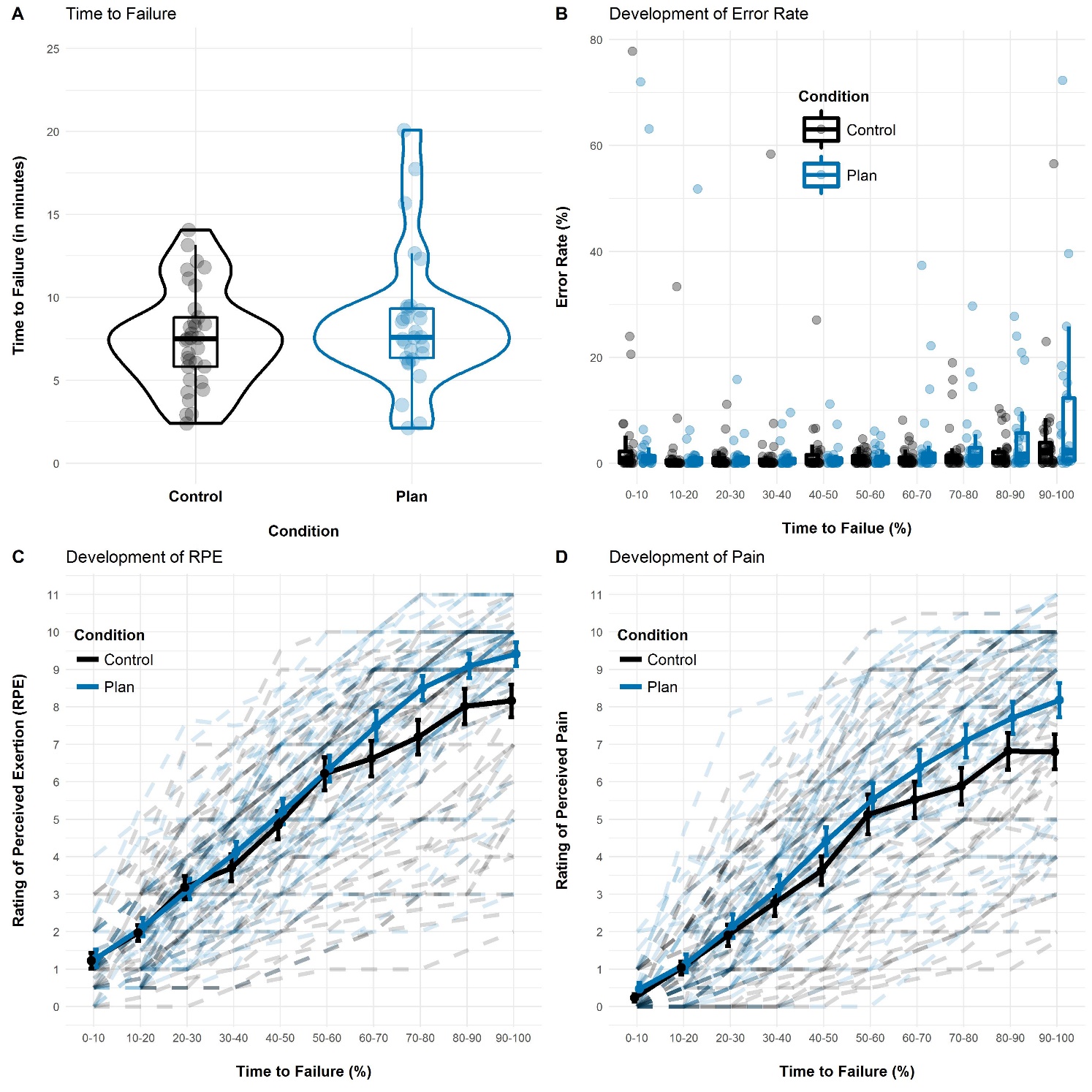
Sport Psychology: New Publication on Self-Regulation of Effort
New paper on the effect of Implementation Intentions on Ratings of Perceived Exertion (RPE) and Endurance Performance.
In this paper Maik Bieleke (with the chair or Social Psychology and Motivation) and Wanja Wolff investigate the effectiveness of the widely used self-regulation strategy of if-then planning (i.e., implementation intentions) in down-regulating RPE and improving performance in a static muscular endurance task.
Interestingly, they found no differences between implementation intention and control participants regarding time to failure and performance quality (read more about the endurance task we used here). However, mixed-effects model analyses revealed a significant Time-to-Failure × Condition interaction for RPE. Compared to the control condition, participants in the implementation intention condition reported substantially greater increases in RPE during the second half of the task and reached higher total values of RPE before task termination
These results show that RPE during an endurance task can be self-regulated with if-then plans. This finding is particularly important given how frequently RPE is used in exercise science as a correlate of physiological processes that ultimately limit performance. Unexpectedly, participants with implementation intentions reported higher RPE than control participants. This suggests that strategies to self-regulate RPE might have ironic effects and can even hamper performance. This implication is important for exercise physiologists, athletes and coaches (the full paper can be read here).
At the chair of sport psychology, we are interested in the psychoneurophysiological correlates of self-controlled sports performance. Specifically, we are interested in how self-regulation strategies can be used to improve sports performance. (click here to learn more).

